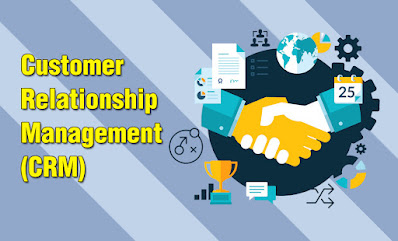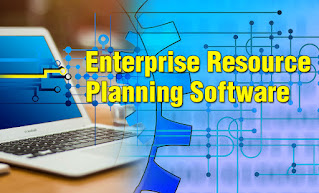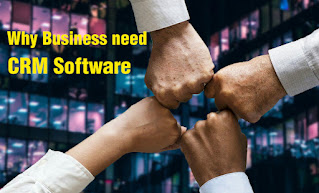An ERP system comprises of an integrated set of software that manages all functions and processes of a business. It is designed to provide a single point of data for management and operations. There are many benefits to using ERP systems, and this blog post explores some of the most common ones.
A Quick History of ERP
Enterprise Resource Planning systems first emerged in the early 1990s as a response to the limitations of legacy systems. These new systems were designed to provide a more holistic approach to managing a company’s resources, with the goal of increasing efficiency and visibility across the organization.
Since then, ERP has evolved considerably, and today’s solutions are much more comprehensive and user-friendly than their predecessors. Nevertheless, the core objectives of ERP remain the same: to help businesses optimize their operations and gain a competitive edge.
There are many different types of ERP systems on the market, each with its own unique features and capabilities. However, all ERP systems share certain commonalities that offer businesses a range of benefits. Here are some of the most significant advantages of using an ERP system:
Improved Efficiency: One of the biggest benefits of ERP is that it can help streamline your business processes and make them more efficient. By centralizing your data and automating various tasks, ERP can help you eliminate wasted time and effort, freeing up your employees to focus on more productive activities.
Greater Visibility: Another key benefit of ERP is that it gives you a much clearer picture of your business - you'll be able to see how different processes impact one another and get an overview of your financial health.
Primary Business Benefits
An ERP system can offer a number of primary benefits to businesses, including improved efficiency and productivity, better decision making, and enhanced customer service.
One of the key benefits of an ERP system is that it can help businesses to improve their overall efficiency and productivity. By centralising data and automating processes, businesses can free up staff time and resources which can be used more effectively elsewhere. In addition, an ERP system can provide employees with real-time information and visibility into all areas of the business, helping them to work more efficiently.
Another benefit of an ERP system is that it can enable better decision making across the business. By providing managers with instant access to accurate and up-to-date information, they can make informed decisions about where to allocate resources and how to best utilise the company’s assets.
Finally, an ERP system can also help businesses to improve their customer service. By automating key processes such as order tracking and invoicing, businesses can reduce the time and effort required to resolve customer queries. In addition, by giving customers self-service access to their account information via an online portal, businesses can further reduce the burden on their customer service teams.
Key Considerations for ERP Implementation
An Enterprise Resource Planning (ERP) system can offer many benefits to a business, from streamlining operations to reducing costs. But before implementing an ERP system, there are some key factors to consider.
Cost is always a primary consideration when making any business decision, and ERP systems are no different. The initial cost of an ERP system can be significant, but it’s important to consider the long-term ROI. An ERP system that is tailored to the specific needs of your business can increase efficiency and productivity, leading to increased profits down the line.
Another key consideration is whether your business is ready for an ERP system. Implementation can be complex and time-consuming, so it’s important to make sure you have the right team in place to manage the project. Once the system is up and running, you’ll need to train employees on how to use it effectively.
ERP systems offer a variety of benefits, but they’re not right for every business. Carefully consider the cost, complexity, and training required before making a decision.
The Value of ERP for a Growing Enterprise
If you are a small or medium sized business owner, you may be wondering if an ERP system is right for your company. After all, ERP systems can be expensive and complicated to implement. However, there are many benefits of an ERP system that can make it well worth the investment for a growing enterprise. Here are just a few of the ways an ERP system can benefit your business:
1. Increased Efficiency and Productivity: An ERP system can help streamline your business processes, making them more efficient and reducing the need for manual input and data entry. This can free up your employees to focus on more productive tasks and help increase overall efficiency and productivity.
2. Greater Accuracy and Visibility: With an ERP system in place, you'll have greater visibility into your data and operations. This can help improve accuracy and decision-making by giving you real-time information on inventory levels, sales figures, customer data, etc.
3. Improved Customer Service: A streamlined and efficient business is better able to provide excellent customer service. An ERP system can help you track customer orders and preferences, so you can quickly and easily resolve any issues that may arise.
4. Increased Profitability: A well-designed ERP system can improve a company's profitability by reducing costs, increasing productivity, and expanding its market reach.
5. Reduced Risk of Fraud and Corruption: With a strong ERP security plan in place, you can minimize the risk of internal corruption. And if you do experience fraud or other financial crimes, you're more likely to detect them quickly and deal with them effectively.
6. Greater Operational Efficiencies: An integrated ERP system will help automate your business processes, greatly improving operational efficiency - which can translate into greater profits for your business.
7. Boosts Productivity: An integrated ERP system can enhance productivity by streamlining manual tasks and giving employees access to real-time information whenever they need
Conclusion
ERP systems are becoming increasingly popular in the business world because they offer a number of important benefits. An ERP system can help to improve communication and collaboration between different departments within a company, which can lead to better decision-making. Additionally, an ERP system can help to streamline processes and make it easier for businesses to track their performance. Implementing an ERP system can be a big investment, but it is typically worth it in the long run thanks to the many advantages that it offers.




.jpg)
